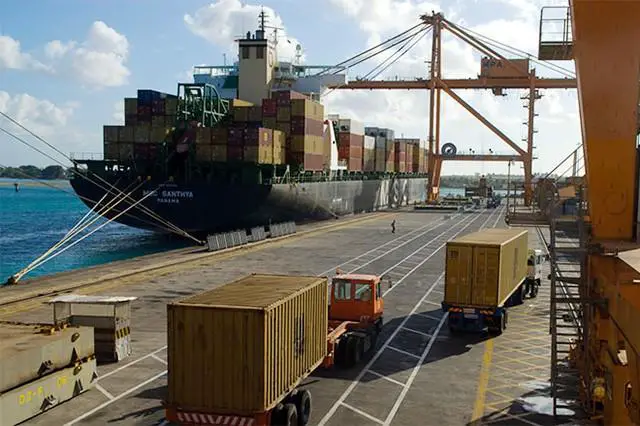Africa is great and has the potential to be greater—economically. The youngest continent in the world stands to garner billions in the trade as its youngest generation present a potential to transform, the continent’s economic pillars, from agriculture to investment.
The region has more than 1.3 people and nearly 60 per cent of its population is under 25 years, according to United Nations Data for World Population Prospects 2017. This means that Africa can fetch healthy intra-regional and international trade growth if it utilizes its existing potentials.
As the African Continental Free Trade Area (AfCFTA) is around the corner to be domesticated (postponed due to virus outbreak), the trade pact could ignite Africa’s industrialization and boost income generation.
The trade pact connects more than 1.3 billion Africans in 55 countries with a combined gross domestic product of nearly $ 3.4 trillion while lifting more than 30 million people from extreme poverty.
According to the report by World Bank—one of Africa’s leading lenders, African Continental Free Trade Area, Economic and Distributional Effects, the pact can spark significant competitiveness with the global economy, reduce poverty and promote inclusion.
The pact is also affirmed by the World Bank’s Chief Economist for Africa, Albert Zeufack, who said “the African Continental Free Trade Area has the potential to increase employment opportunities and incomes, helping to expand opportunities for all Africans,”
Africa is now battling the coronavirus (COVID-19), which is sucking the life out of the region’s vibrant economies, thus—with the AfCFTA onboard, Africa can resuscitate its economy, rebound exports and enhance sustainable growth.
READ:China’s Belt and Road Initiative, AfCFTA to anchor Africa’s economy
AfCFTA potential for Africa
According to the report, real income gains from the full implementation of the AfCFTA could increase by 7 a per cent by 2035 or nearly $450 billion.
The pact is expected to boost trade, especially intraregional trade in manufacturing, whereby the report argues that, the volume of total exports would increase by almost 29 per cent.
In that context, the pact could change the intra-regional trade numbers standing at around 17 per cent in exports compared to 59 per cent in Asia and 69 per cent in Europe, according to a Brookings report.
“Intracontinental exports would increase by over 81 per cent, while exports to non-African countries would rise by 19 per cent. Intra AfCFTA exports to AfCFTA partners would rise especially fast for Cameroon, the Arab Republic of Egypt, Ghana, Morocco, and Tunisia, with exports doubling or tripling concerning the baseline,” the report argues.
READ:AfCFTA: The stimulus package that Africa needs
Further, the report said that “under the AfCFTA scenario, manufacturing exports would gain the most, 62 per cent overall, with intra-Africa trade increasing by 110 per cent and exports to the rest of the world rising by 46 per cent. Smaller gains would be observed in agriculture—49 per cent for intra-Africa trade and 10 per cent for extra-Africa trade. The gains in the services trade are more modest—about 4 per cent overall and 14 per cent within Africa,”
However, the report also went to expose how output and product parameters could be impacted by the trade pact, but more importantly compel the reallocation of resources across sectors and countries.
“By 2035, total production of the continent would be almost US$212 billion higher than the baseline. The output would increase the most in natural resources and services (1.7 per cent), with manufacturing seeing a 1.2 per cent rise,” the report said.
On poverty elimination, the AfCFTA is said to have the ability to lift 1.5 per cent of the region population from extreme poverty and 68 million people from moderate poverty.
Hence, in return—the pact stands to cause a reaction to other sectors and enhance labour demand. “Implementation of AfCFTA would increase employment opportunities and wages for unskilled workers and help to close the gender wage gap. The continent would see a net increase in the proportion of workers in energy-intensive manufacturing. Agricultural employment would increase by 60 per cent of countries, and wages for unskilled labour would grow faster where there is an expansion in agricultural employment” the report argued.
READ:Africa’s railways infrastructure key to AfCFTA success
The report signals a change in labour relations, particularly in the gender wage gap, and opportunities for unskilled workers.
“AfCFTA would increase employment opportunities and wages for unskilled workers and help to close the gender wage gap. The continent would see a net increase in the proportion of workers in energy-intensive manufacturing. Agricultural employment would increase by 60 per cent of countries, and wages for unskilled labour would grow faster where there is an expansion in agricultural employment,”
According to the report, the AfCFTA stands to mould a promising landscape for unskilled labour as wages would rise for women than men by 2035.
“By 2035, wages for unskilled labour would be 10.3 per cent higher than the baseline; the increase for skilled workers would be 9.8 per cent. Wages would grow slightly faster for women than for men as output expands in key female labour-intensive industries. By 2035, wages for women would increase 10.5 per cent with respect to the baseline, compared with 9.9 per cent for men,”
The AfCFTA has demonstrated how gendered it is, hence—this marks a rather good signal for the future, as almost 70 per cent of women comprise informal cross border traders in Africa.
However, the reality of the trade pact can be realized when all parties involved commit and execute the plans strategically.
“But successful implementation will be key, including careful monitoring of impacts on all workers –women and men, skilled and unskilled—across all countries and sectors, ensuring the agreement’s full benefit.” World Bank Chief Economist for Africa argued.
As the African economy has already experienced an increase in inflation triggered by the virus, in some cases by more than 5 per cent in the first quarter of 2020, the region has the potential to transform its economy over time and space.
